Portable SSDs have become an important storage solution for users who need speed, capacity, and reliability outside of their main system. With technology advancing and prices continuing to fall, these drives are now a standard option for professionals and everyday users alike. In such a competitive market, brands need to deliver something distinctive to attract attention. TEAMGROUP introduces the PD20 Mini External SSD, a drive that focuses on performance and portability in a very compact form factor.
The TEAMGROUP PD20 Mini is aimed at business travelers, content creators, and anyone who wants fast storage in a lightweight design. At just 22 grams, it offers capacities from 1 TB to 4 TB and supports transfer speeds of up to 2,000 MB/s using a USB 3.2 Gen 2×2 Type-C connection. The drive is also designed with everyday durability in mind, offering IP54-rated dust and splash resistance, along with a silicone port cover for added protection.
For this review, we are testing the 2TB version of the TEAMGROUP PD20 Mini External SSD. We will take a closer look at its build quality, real-world transfer speeds, and overall user experience to see how it performs against other portable SSDs currently available.
Specifications
| Specifications | Details |
|---|---|
| Model | PD20 |
| Interface | USB 3.2 Gen2 x2 Type-C |
| Capacity | 1TB / 2TB / 4TB |
| Voltage | DC +5V |
| Operation Temperature | 0°C ~ 70°C |
| Storage Temperature | -40°C ~ 80°C |
| Data Transfer Rate | 1TB – Read/Write: up to 2,000 / 1,800 MB/s 2TB – Read/Write: up to 2,000 / 1,800 MB/s 4TB – Read/Write: up to 2,000 / 1,800 MB/s |
| Weight | 22g |
| Dimensions | 75(L) x 34(W) x 15.2(H) mm |
| Accessories | Type-C to Type-C Cable |
| Operating System | Windows XP or later, Mac OS 10.6 or later, Linux 2.6 or later |
| Warranty | 5-year limited warranty |
Unboxing
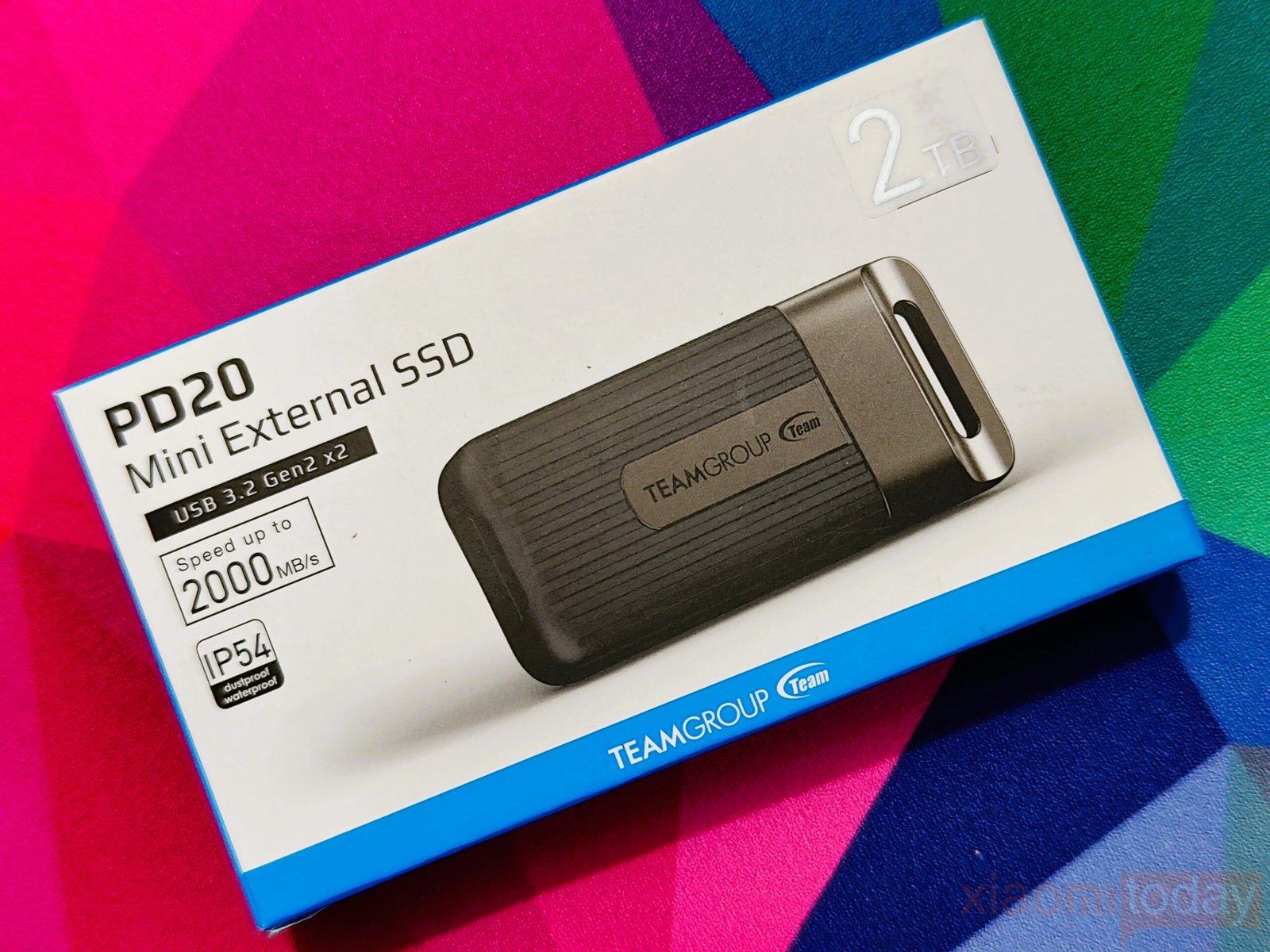
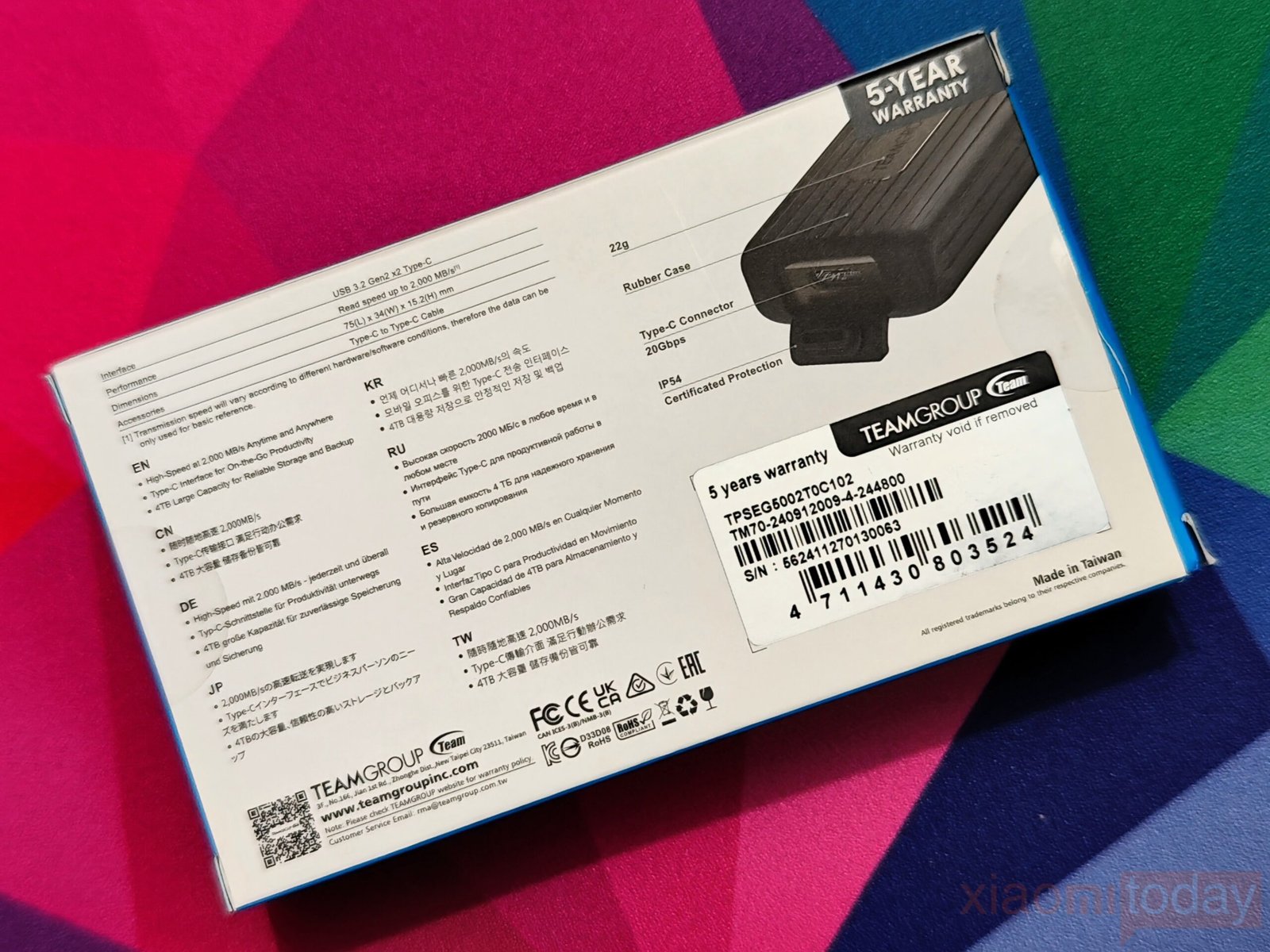
The TeamGroup PD20 2TB Mini External SSD comes in simple, clean, and minimalist packaging that focuses on the essentials. The front clearly lists key features like USB 3.2 Gen 2×2 support, 2000 MB/s transfer speeds, 2TB capacity, and an IP54 rating for dust and water resistance. Everything is easy to read and laid out in a way that gets straight to the point. On the back, there’s more practical information, including the included 20Gbps Type-C cable and the 5-year warranty. The use of multiple languages keeps things accessible for users in different regions without cluttering the design.
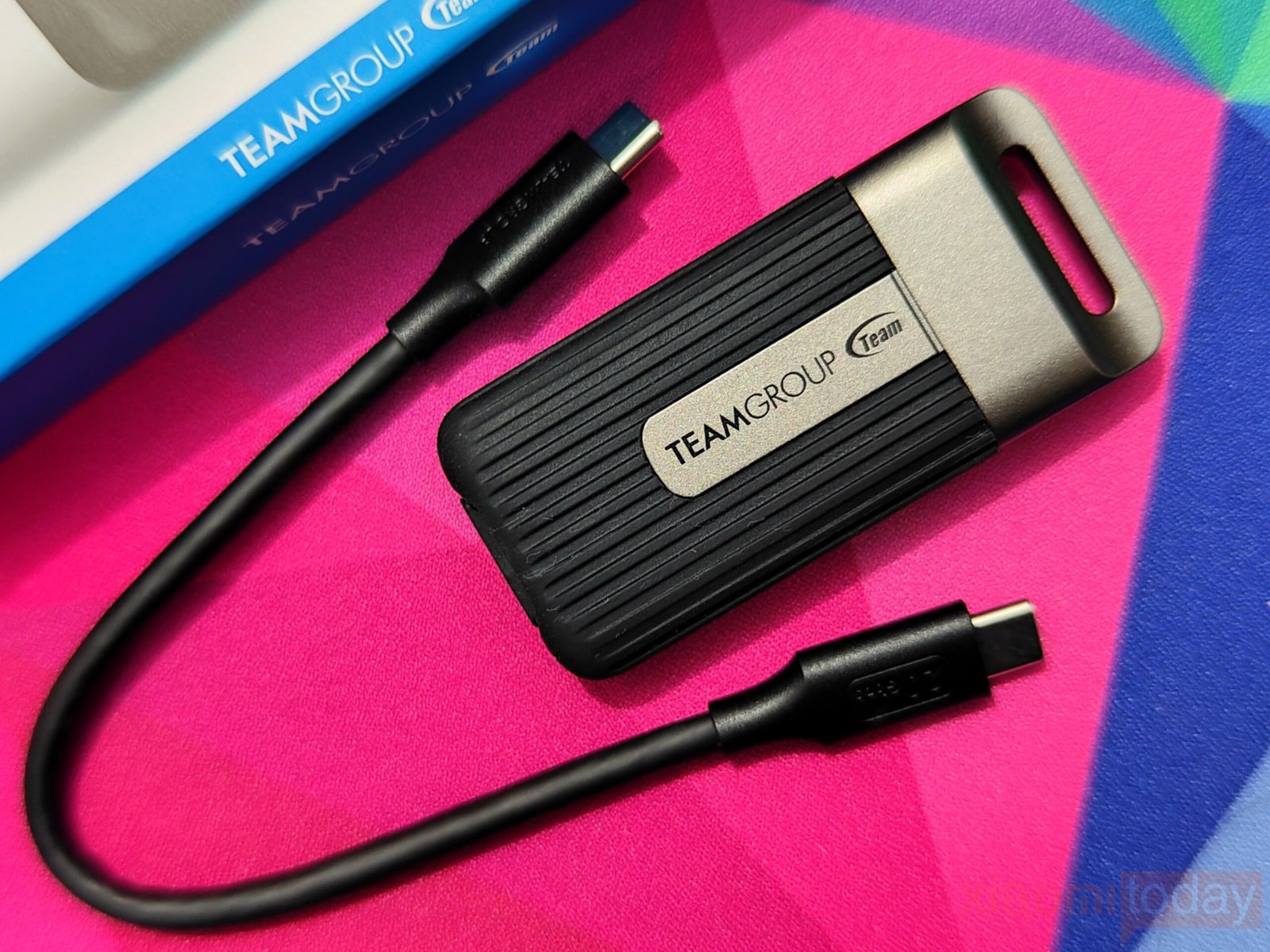
Inside the box, the TeamGroup PD20 2TB Mini External SSD comes with the drive and a Type-C to Type-C cable. Its compact size makes it easy to carry, and setup is as simple as plugging it in for immediate use.
Design
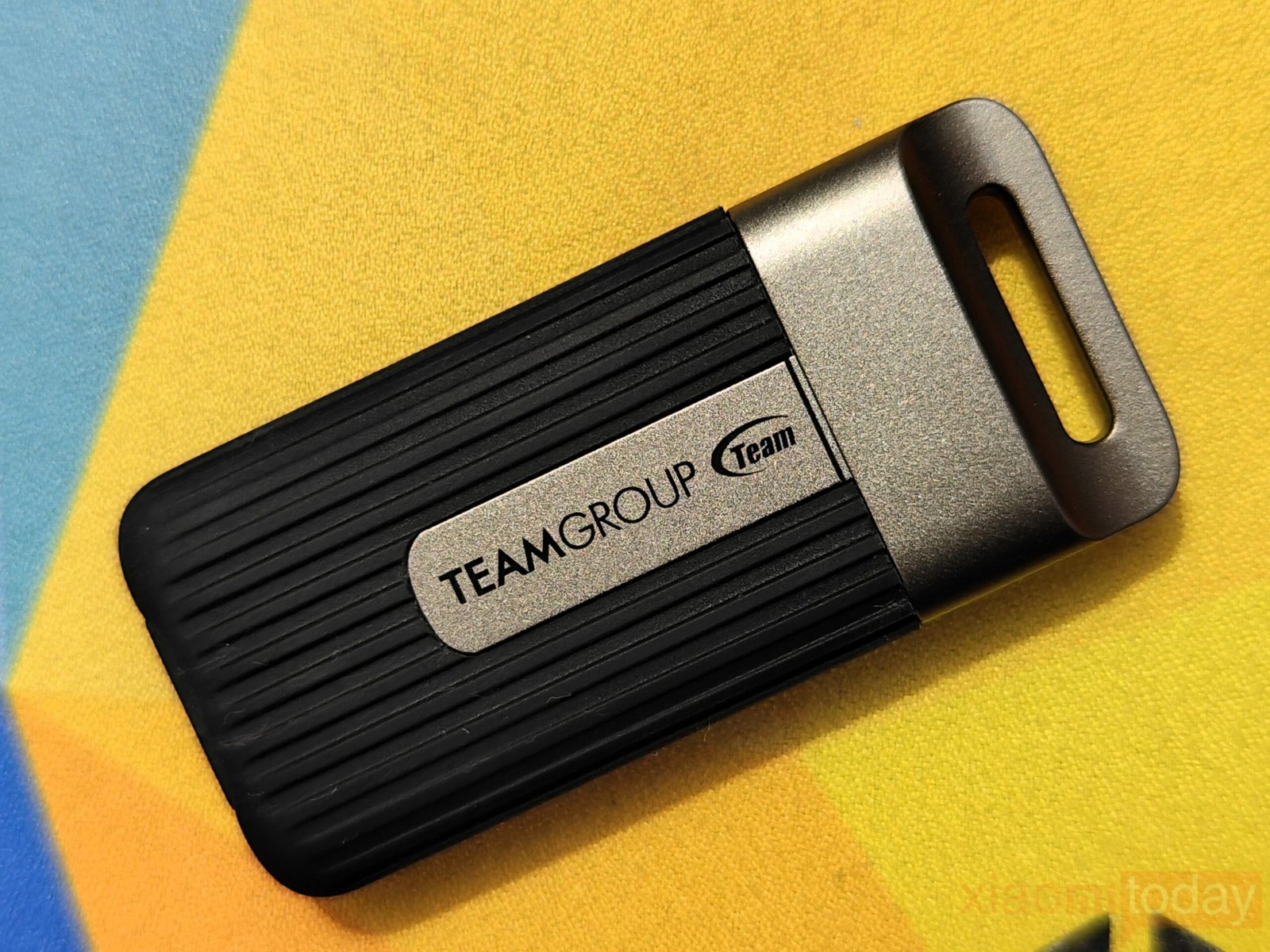
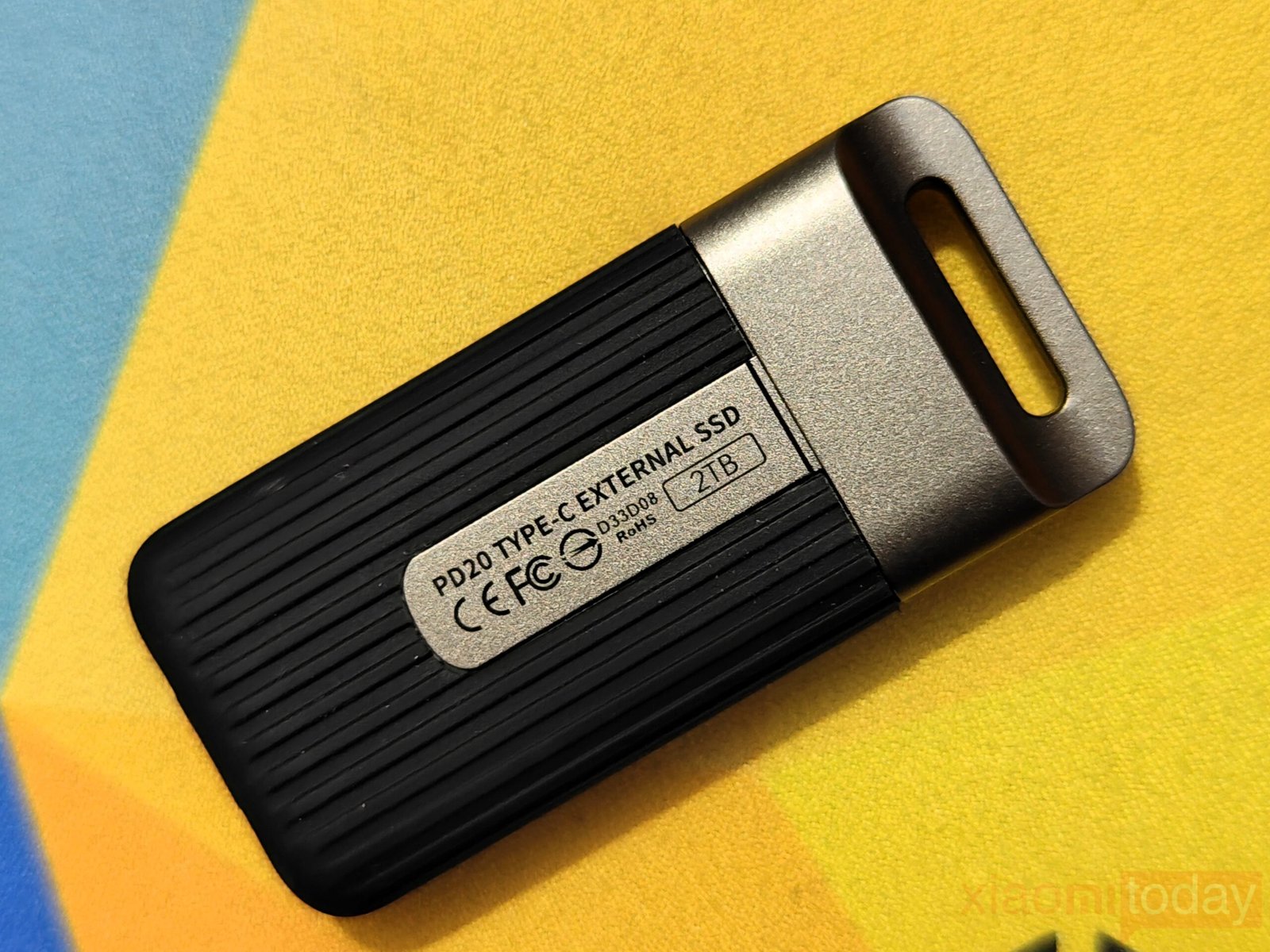
The TeamGroup PD20 2TB Mini External SSD is compact and lightweight, measuring 75 x 34 x 15.2 mm and weighing just 25.5 grams. It is slightly larger than a standard flash drive but offers up to 4TB of storage, with the unit tested here being the 2TB version. The outer shell is made of black rubber with horizontal ridges for a secure grip, covering an internal plastic case. The front displays the TeamGroup logo, while the back lists the model name, capacity, and certification marks, including CE, FCC, and RoHS. A small loop on one end allows it to be attached to a keychain or lanyard for easy carrying.
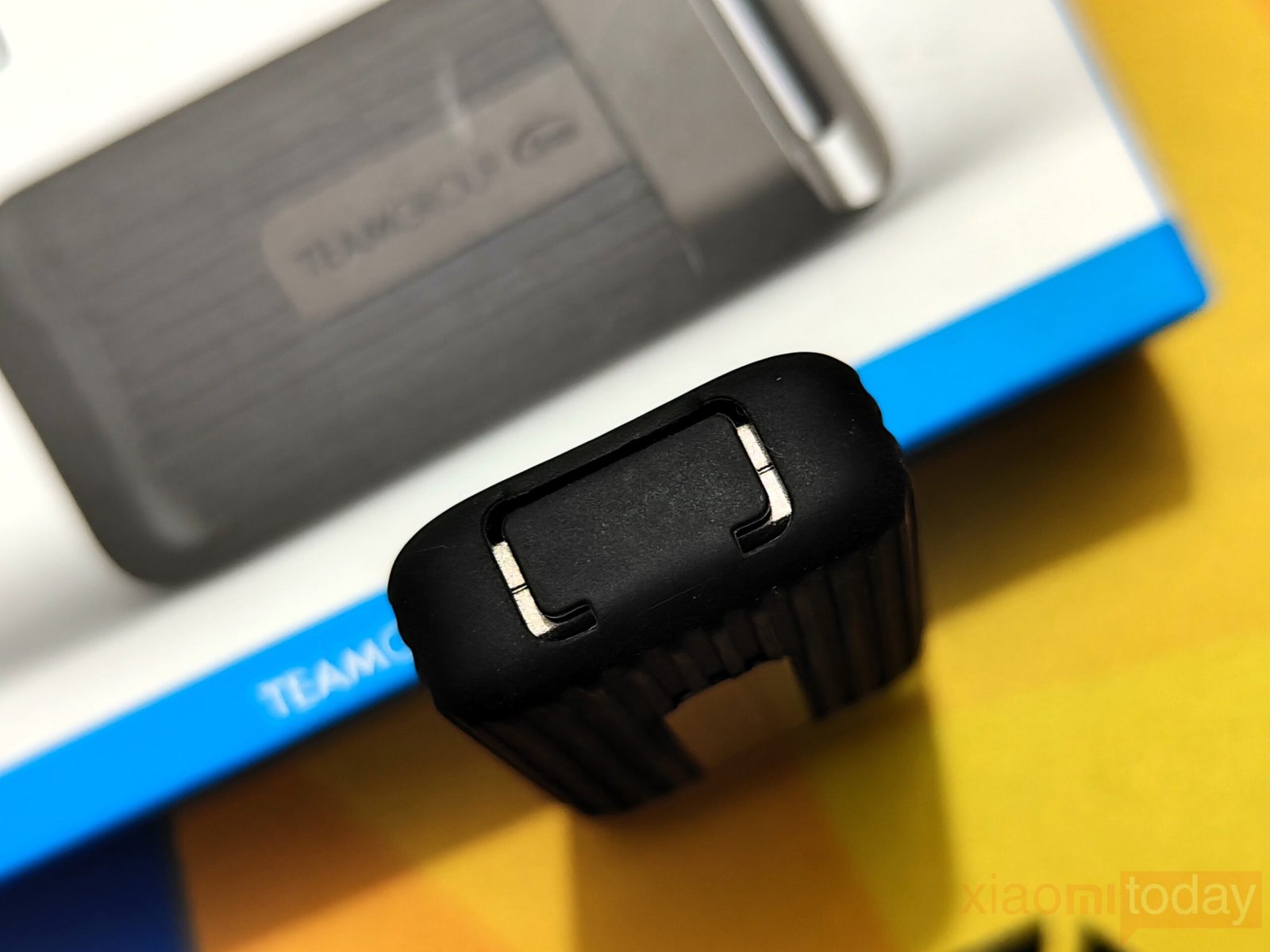
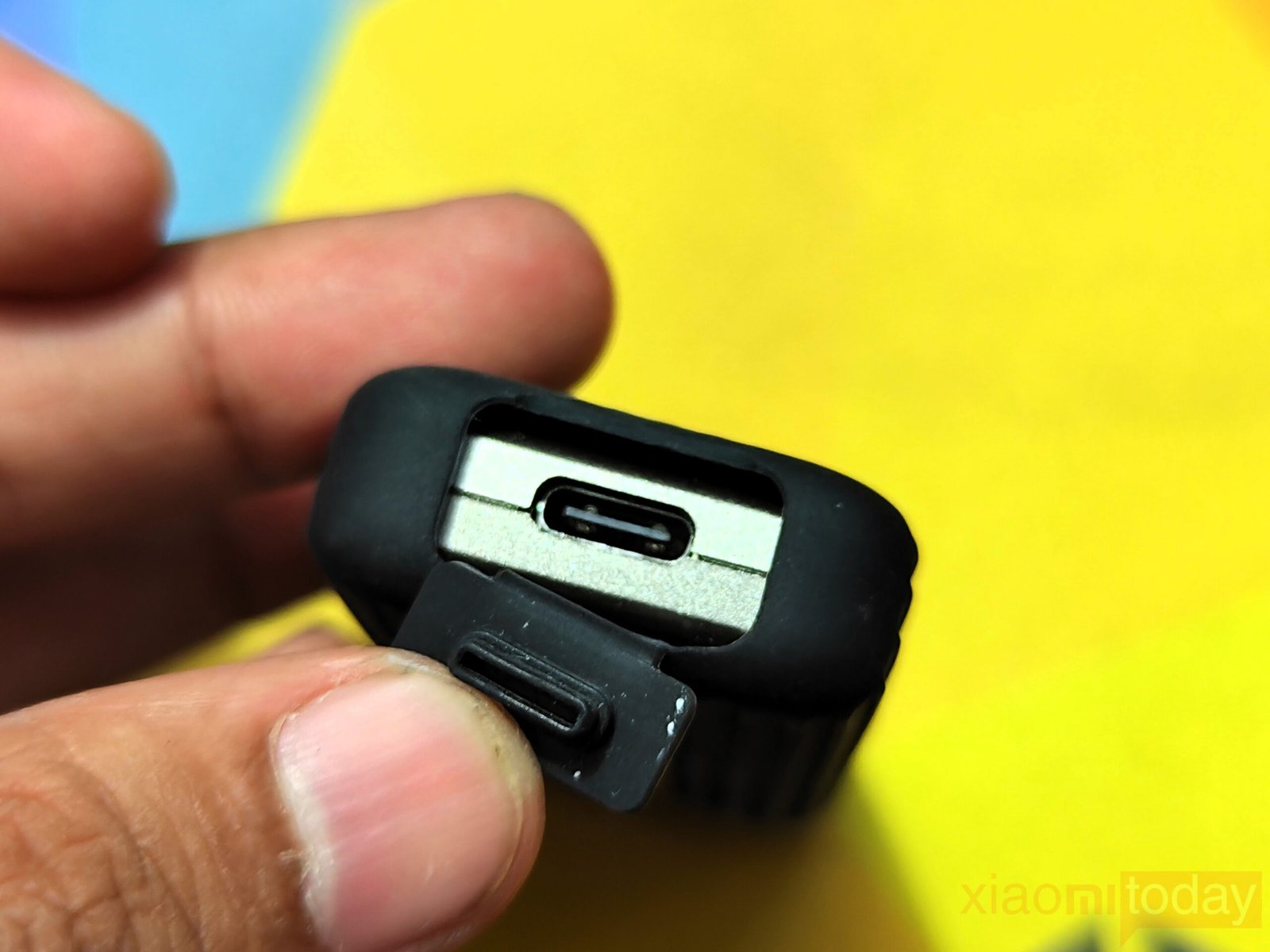
A silicone cover protects the USB-C port, helping keep dust and moisture away. The IP54 rating adds resistance to dust and light water splashes, making it suitable for daily use and occasional outdoor trips. Its USB Type-C interface works with a wide range of devices, including PCs, laptops, tablets, and smartphones, allowing for quick and straightforward connections. This makes it a practical option for both work and everyday tasks.
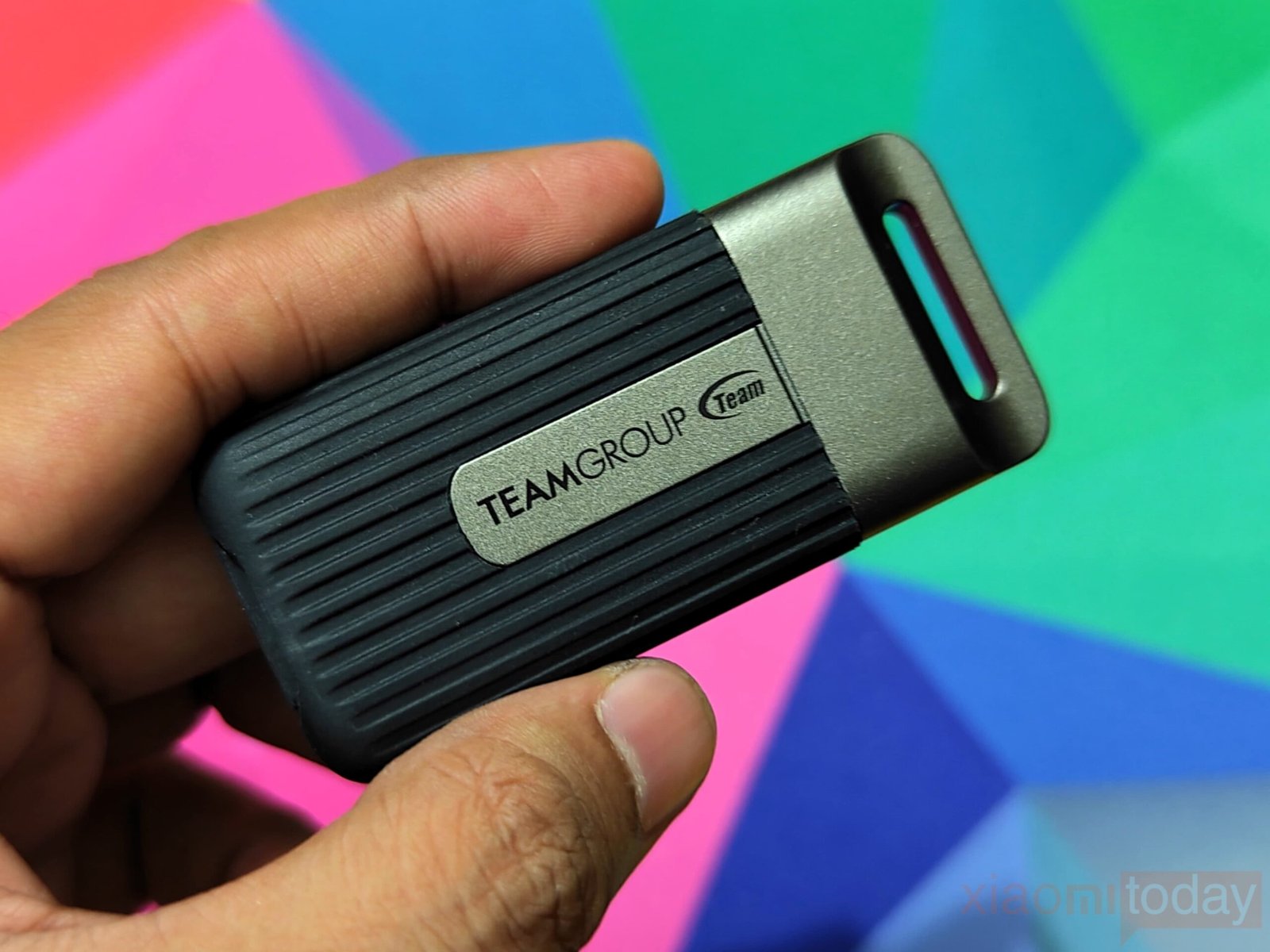
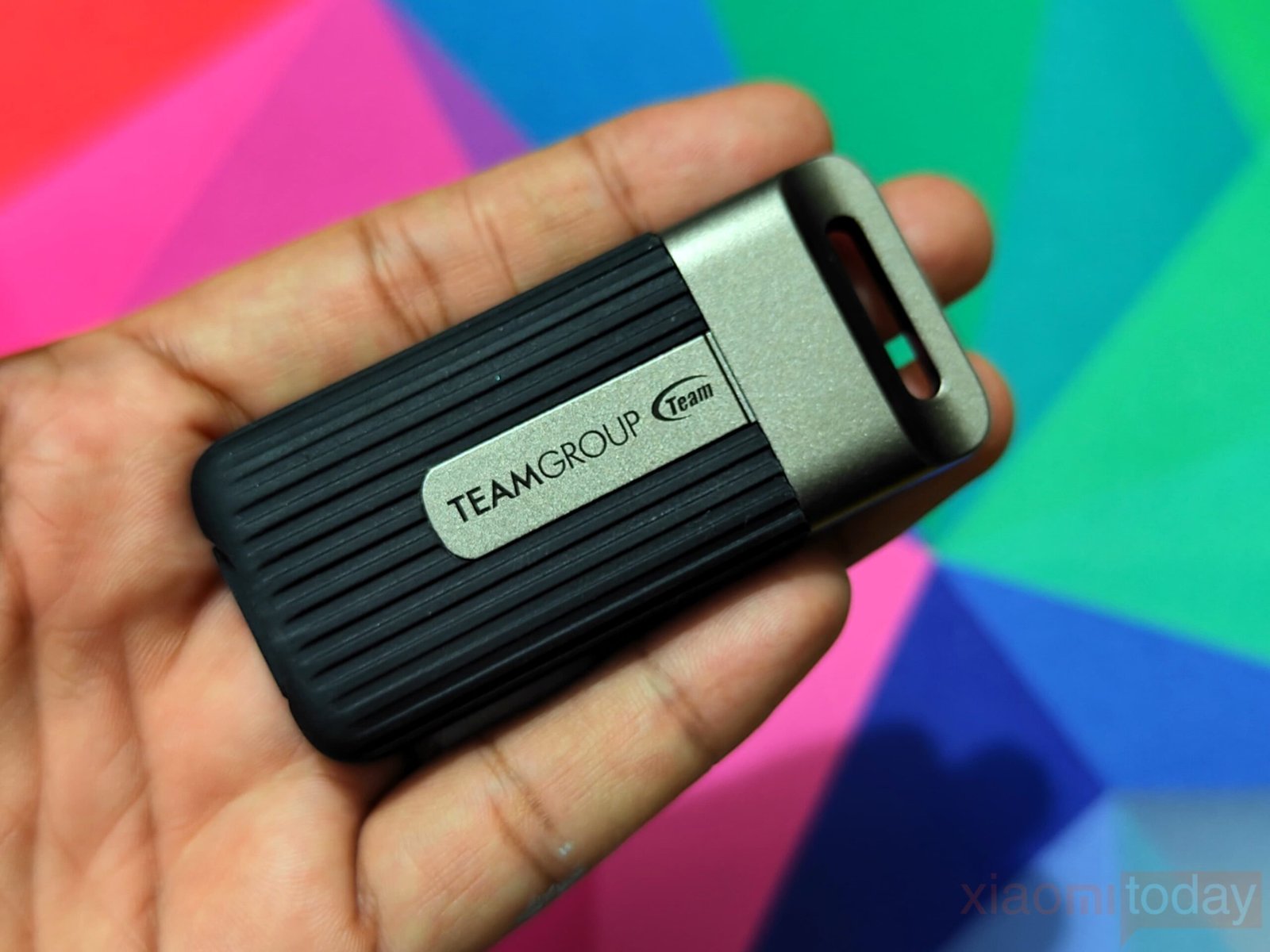
Overall, the TEAMGROUP PD20 Mini External SSD has a compact, practical design with a simple, clean look. The silicone casing adds grip and protection, while the metallic ring provides a small visual contrast and extra strength. This ring can be used to attach the drive to a backpack or carry it as a keychain, making it easier to take along. The mix of materials and finishes gives it a straightforward yet functional style suited for daily use.
Performance Test
The TEAMGROUP PD20 Mini External SSD was tested on a system built around an Intel Core i7-13700K processor and an MSI MPG Z790 CARBON WIFI II DDR5 motherboard. Connectivity was handled through the USB 3.2 Gen 2×2 interface to allow the drive to operate at its maximum potential. The absence of an activity LED means there’s no visual indication when the drive is reading or writing data, something users may notice when working with large transfers.
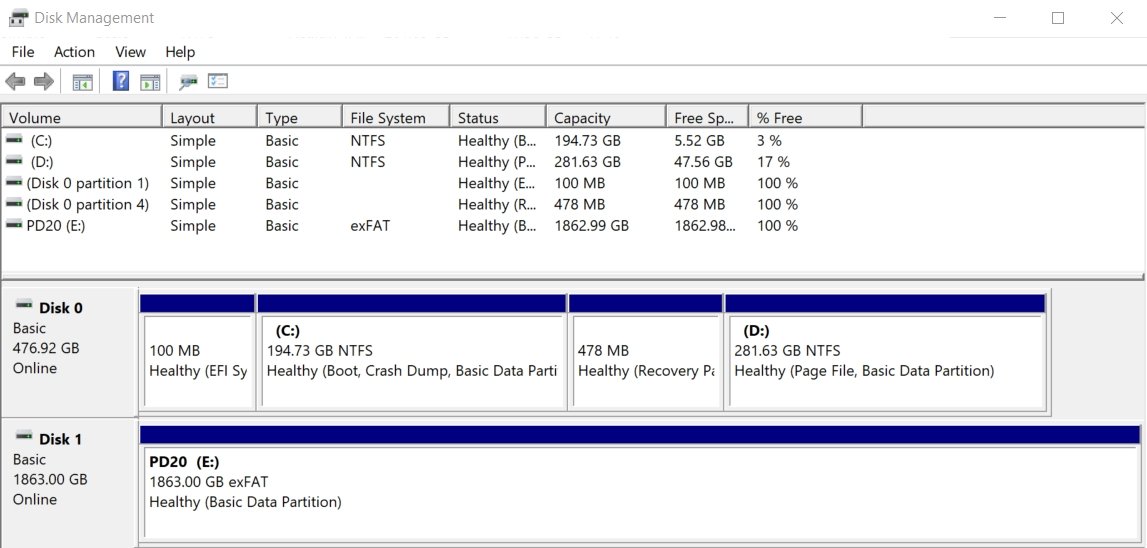
When connected, Windows Disk Manager showed 1.8TB of usable space from the stated 2TB capacity. The drive comes preformatted in exFAT, making it ready for use across Windows and macOS without reformatting. This is practical for users who often move large files between different operating systems.
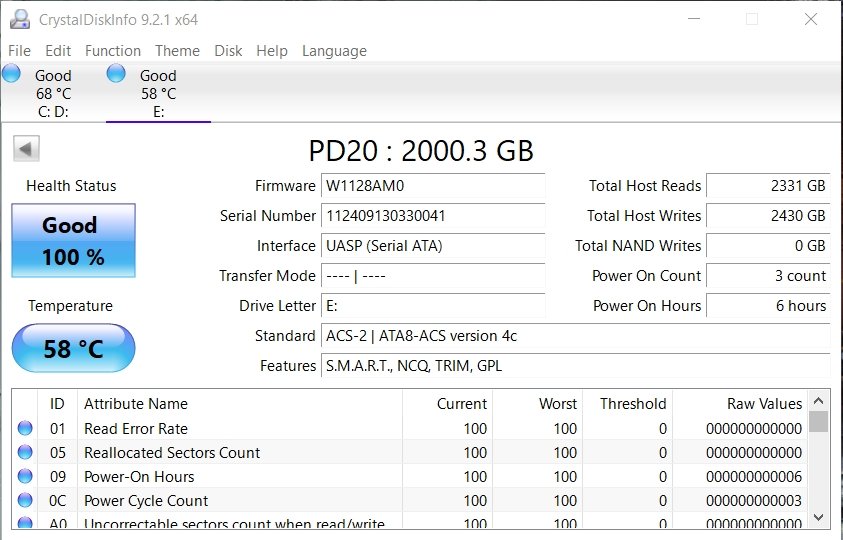
CrystalDiskInfo identified the model as “PD20: 2000.3 GB” and confirmed support for S.M.A.R.T., TRIM, and NCQ. It also uses the UASP protocol, which helps maintain low latency and efficient command handling during sustained transfers. This ensures smoother performance under heavier workloads.
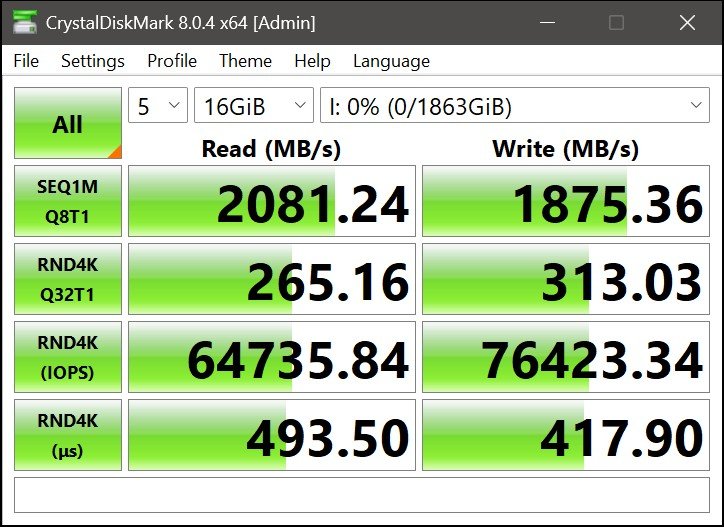
In CrystalDiskMark testing, the PD20 reached sequential read speeds of 2081.24 MB/s and write speeds of 1875.36 MB/s, showing solid data transfer rates. In random 4K QD1 tests, it achieved 265.16 MB/s for reads and 313.03 MB/s for writes. The 4K QD32T results recorded 64,735.84 IOPS for reads and 76,423.34 IOPS for writes. Latency measured 493.50 µs for reads and 417.90 µs for writes, reflecting quick response times for frequent access tasks. Overall, the results are consistent with the manufacturer’s specifications, confirming stable performance in both sequential and random workloads.
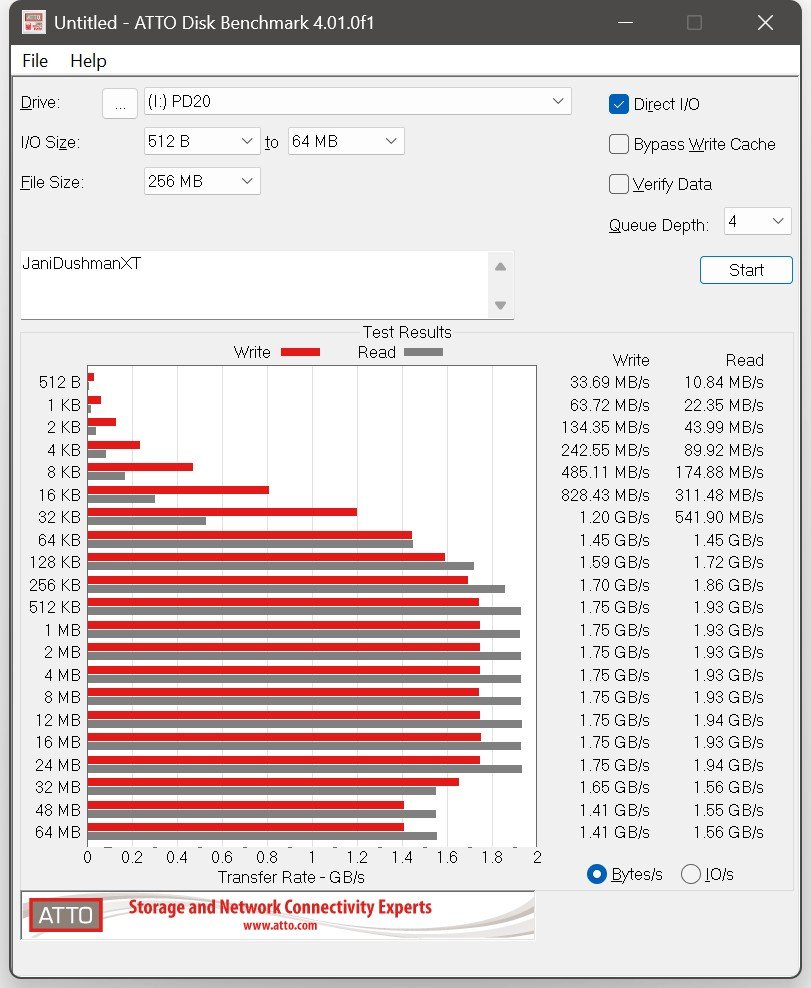
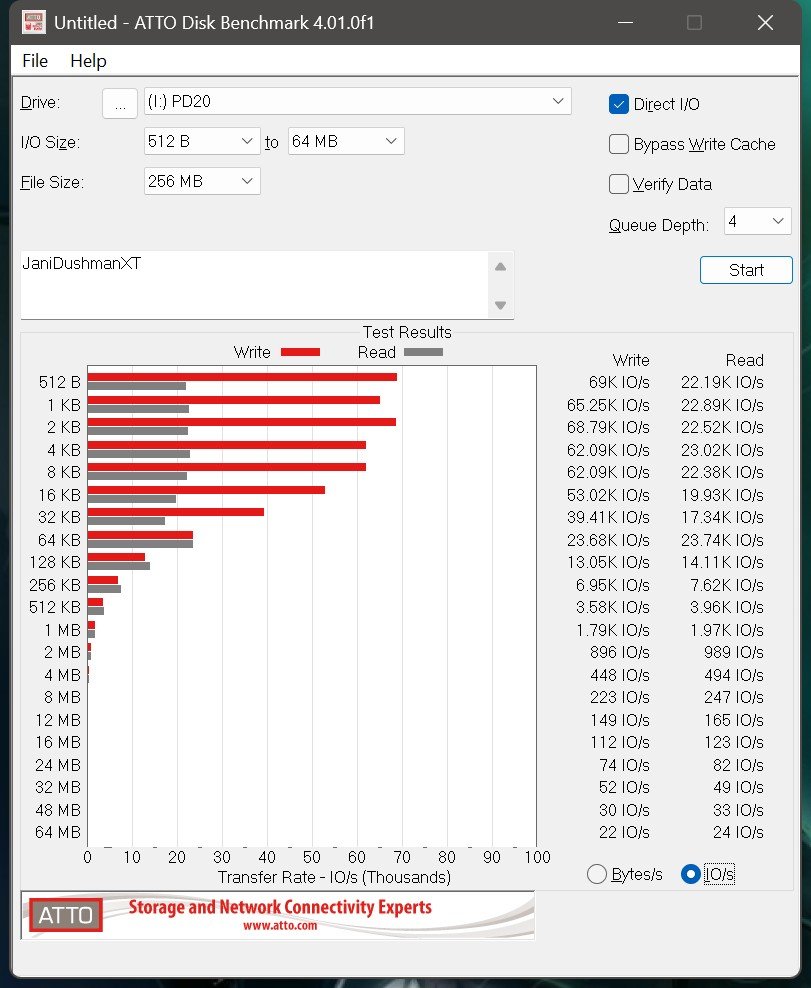
The ATTO Disk Benchmark results for the PD20 show steady performance across different block sizes, tested with a queue depth of 4, direct I/O enabled, and write cache bypassed. Sequential write speeds start at 33.69 MB/s for 512B blocks and climb to a peak of 1.76 GB/s at the 24 MB block size. Read speeds begin at 10.84 MB/s for 512B and reach 1.94 GB/s at 12 MB and 24 MB blocks, with a slight drop at larger sizes. In IOPS, the drive handles small files well, hitting 68.79K write IOPS at 2 KB and 23.74K read IOPS at 16 KB before gradually declining with larger blocks. Overall, the PD20 delivers strong transfer rates and efficient small-file handling, making it a solid choice for fast data transfers, backups, and large file operations.
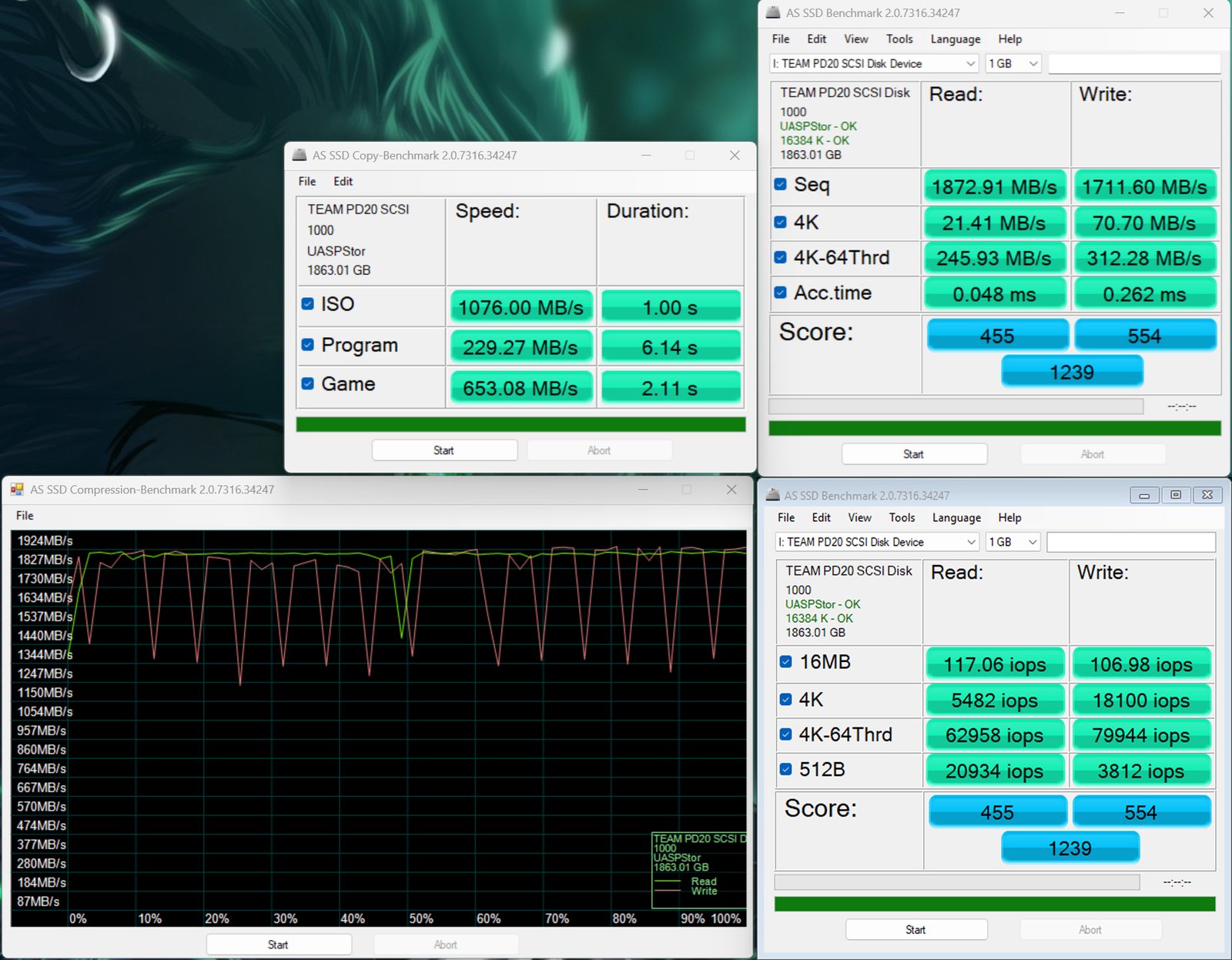
The PD20 shows solid results in AS SSD Benchmark testing. It handled ISO transfers at 1076.00 MB/s in 1.00 seconds, Program files at 229.27 MB/s in 6.14 seconds, and Game files at 653.08 MB/s in 2.11 seconds. Sequential performance reached 1872.91 MB/s for read and 1711.60 MB/s for write. In 4K tests, it managed 21.41 MB/s read and 70.70 MB/s write, while the 4K-64Thrd results came in at 245.93 MB/s read and 312.28 MB/s write. Read access time was 0.048 m,s and write access time was 0.262 ms. The benchmark produced an overall score of 1239, with 455 for read and 554 for write.
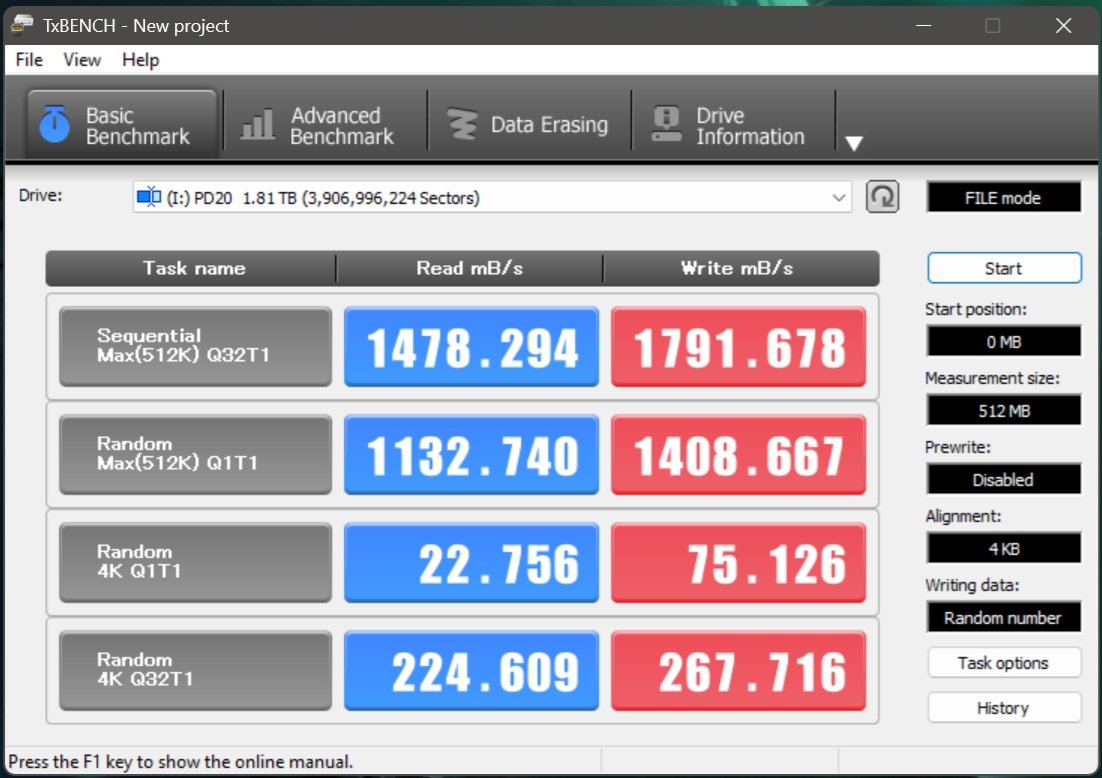
In TxBench, the PD20 delivered sequential read speeds of 1478.294 MB/s and write speeds of 1791.678 MB/s. For 4K random reads at queue depth 1, it achieved 22.756 MB/s, while random writes reached 75.126 MB/s. The results confirm the benefits of USB 3.2 Gen 2×2, with stable performance across different file sizes and workloads.
Thermal Performance
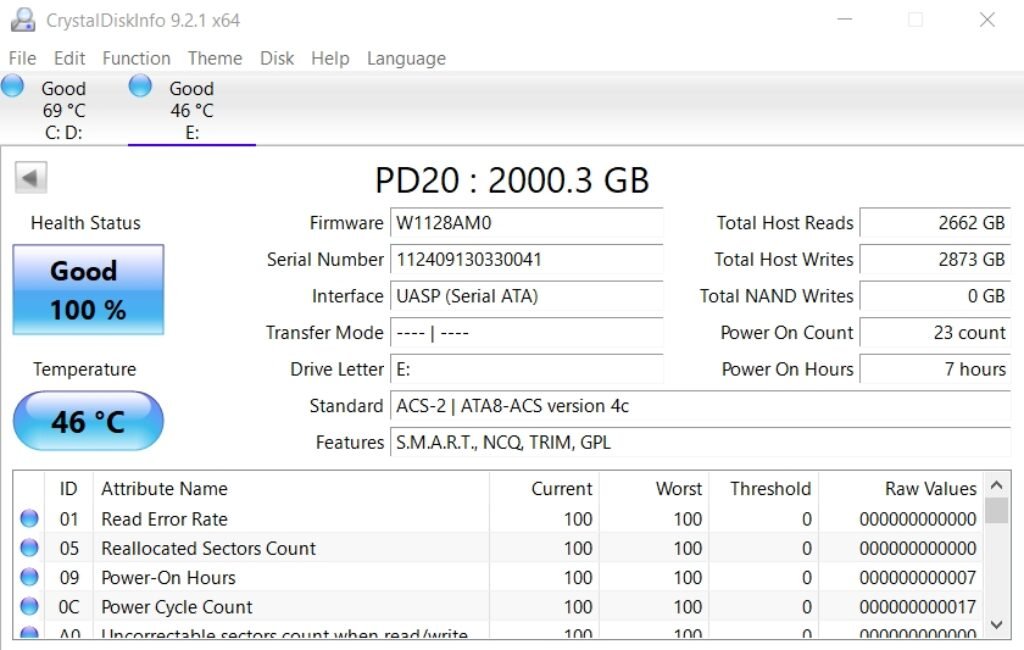
During testing, the TEAMGROUP PD20 maintained stable temperatures without any noticeable throttling. Under extended sequential write loads lasting over 20 minutes, surface temperatures measured around 46°C in a 24°C ambient environment. This is within a safe operating range and indicates that the drive’s internal thermal management is effective, even without an external heatsink.
Real-World File Transfer Tests
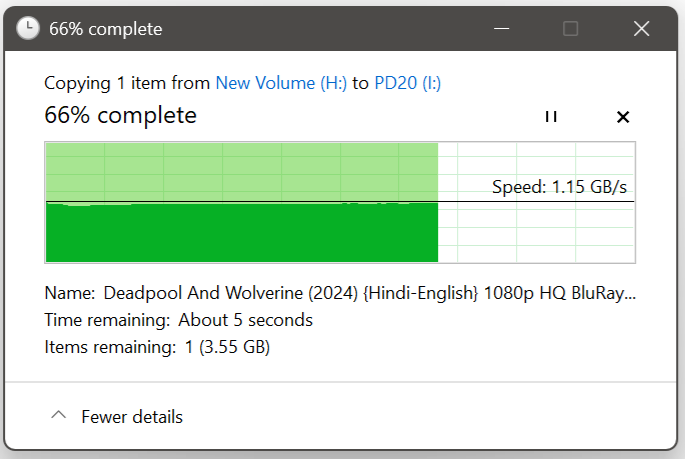
For practical usage, we performed several file transfer scenarios. In the large file test, a single 20GB 4K video file was copied from the test system’s NVMe SSD to the PD20. The transfer averaged 1.15GB/s and completed in just under 18 seconds, with no significant dips in speed. In a mixed file test containing 15GB of assorted images, documents, and compressed archives, the transfer rate averaged around 1GB/s, reflecting the performance impact of handling many smaller files.
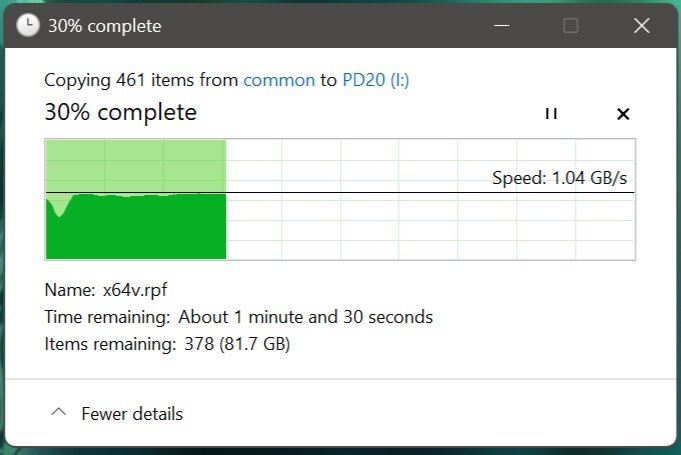
For game storage use, a 110GB Steam library folder was copied to the PD20. The process averaged 1.04 GB/s, with only minor fluctuations during smaller asset files. Load times when running titles directly from the drive were slightly slower than an internal NVMe SSD but still faster than a SATA SSD, making the PD20 a viable option for portable game libraries.







